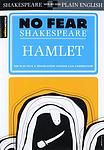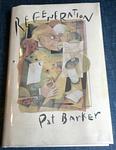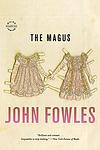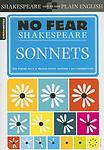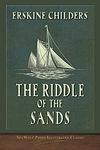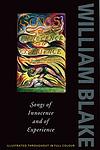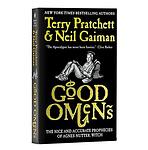The Greatest "Fiction, United Kingdom" Books of All Time
Click to learn how this list is calculated.
This list represents a comprehensive and trusted collection of the greatest books. Developed through a specialized algorithm, it brings together 300 'best of' book lists to form a definitive guide to the world's most acclaimed books. For those interested in how these books are chosen, additional details can be found on the rankings page.
Genres
Countries
Date Range
Reading Statistics
Click the button below to see how many of these books you've read!
Download
If you're interested in downloading this list as a CSV file for use in a spreadsheet application, you can easily do so by clicking the button below. Please note that to ensure a manageable file size and faster download, the CSV will include details for only the first 500 books.
Download-
1. To the Lighthouse by Virginia Woolf
This novel is a pioneering work of modernist literature that explores the Ramsay family's experiences at their summer home on the Isle of Skye in Scotland. The narrative is divided into three sections, focusing on a day in the family's life, a description of the house during their absence, and their return after ten years. The book is known for its stream of consciousness narrative technique and its exploration of topics such as the passage of time, the nature of art, and the female experience.
-
2. Vanity Fair by William Makepeace Thackeray
This classic novel follows the lives of two contrasting women, the cunning and ruthless Becky Sharp and the sweet and naive Amelia Sedley, against the backdrop of English society during the Napoleonic Wars. The book is a satirical exploration of the obsession with wealth, status, and social climbing, and the moral bankruptcy that can result from such pursuits. The narrative weaves an intricate tale of love, betrayal, and redemption, exposing the vanity and hypocrisy of high society.
-
3. Wide Sargasso Sea by Jean Rhys
This novel is a postcolonial prequel to "Jane Eyre," exploring the life of Mr. Rochester's mad wife, Bertha. Set in Jamaica during the 1830s, it follows the story of Antoinette Cosway, a white Creole heiress, from her youth in the Caribbean to her unhappy marriage and move to England. Caught in a society that both rejects and exoticizes her, Antoinette is ultimately driven into madness by her oppressive husband and the haunting legacy of colonialism.
-
4. First Folio by William Shakespeare
This collection is a compilation of 36 plays by a renowned English playwright, published seven years after his death. It includes comedies, histories, and tragedies, some of which had never been published before. Notable works in the compilation include "Macbeth," "Julius Caesar," "Twelfth Night," "The Tempest," and "As You Like It." The collection is considered one of the most influential books ever published in the English language, as it preserved many of the playwright's works that might have otherwise been lost.
-
5. The Spy Who Came in From the Cold by John le Carré
This novel is a fascinating tale of espionage during the Cold War, centered around a British intelligence officer who is seemingly ready to end his spy career. However, he is given one last mission before his retirement: to bring down the head of East German Intelligence. As he navigates the dangerous world of spies and double agents, he is forced to confront his own past and the sacrifices he has made for his country. The story is a complex exploration of morality, loyalty, and the personal cost of political conflict.
-
6. Gravity's Rainbow by Thomas Pynchon
Set during the end of World War II, the novel follows Tyrone Slothrop, a lieutenant in the U.S. Army, as he tries to uncover the truth behind a mysterious device, the "Schwarzgerät", that the Germans are using in their V-2 rockets. The narrative is complex and multi-layered, filled with a vast array of characters and subplots, all connected by various themes such as paranoia, technology, and the destructive nature of war. The book is known for its encyclopedic nature and its challenging, postmodernist style.
-
7. Regeneration by Pat Barker
"Regeneration" is a historical and anti-war novel set in a mental hospital during World War I. The narrative focuses on the experiences and interactions of a psychiatrist and his patients, most of whom are soldiers suffering from severe shell shock. The novel explores themes of masculinity, identity, and the psychological effects of war, while also critiquing the societal pressures and expectations that led many men to enlist and subsequently suffer from mental trauma.
-
8. The Thirty-Nine Steps by John Buchan
Set on the eve of World War I, the novel follows an ordinary man who becomes entangled in a dangerous plot after a mysterious stranger shows up at his apartment, claiming to be a spy. When the stranger is murdered, the protagonist is falsely accused and becomes a fugitive, fleeing to the Scottish highlands. He must unravel a conspiracy of international espionage and prevent a political assassination to clear his name.
-
9. Cloud Atlas by David Mitchell
This novel is a unique blend of six different stories, each set in a different time and place, spanning from the 19th century South Pacific to a post-apocalyptic future. Each tale is written in a different style, reflecting the time and setting it represents, and they are all connected through shared themes and recurring motifs. The stories are nested within each other, with each interrupted by the next, only to be concluded in the second half of the book. The novel explores themes of predacity, civilization, reincarnation and the eternal recurrence of the same behaviors throughout history.
-
10. The Magus by John Fowles
The novel is a psychological drama that follows a young Englishman, Nicholas Urfe, who takes a teaching post on a remote Greek island to escape his dull life and a failed relationship. There, he meets a wealthy, mysterious man who introduces him to psychological games that blend myth, reality, and illusion. As Nicholas falls deeper into these manipulative scenarios, he begins to question his own sanity and reality. The story is filled with existential themes, exploring the nature of personal freedom, love, and the blurred line between reality and fantasy.
-
11. Season of Migration to the North by Al-Tayyib Salih
The novel is a post-colonial exploration of the complex relationship between the East and the West. It tells the story of a young man who returns to his village in Sudan after studying in Europe, only to find that a new villager, a man who has also spent time in the West, has brought back with him a very different perspective on the relationship between the two cultures. The story unfolds as a gripping psychological drama, filled with themes of identity, alienation, and the clash of cultures.
-
12. The Sonnets by William Shakespeare
"The Sonnets" is a collection of 154 poems that explore themes such as love, beauty, politics, and mortality. The sonnets are written in a specific form that the poet popularized, consisting of 14 lines with a specific rhyme scheme. The collection is divided into two sections: the first 126 sonnets are addressed to a young man, while the last 28 are addressed to a woman known as the 'dark lady'. This collection is widely considered one of the greatest achievements in English literature.
-
13. Tinker, Tailor, Soldier, Spy by John le Carré
In this espionage thriller, a semi-retired British intelligence officer is tasked with uncovering a Soviet mole within the highest ranks of the British Secret Service. As he delves deeper into the investigation, he uncovers a web of betrayal and deceit that reaches far beyond the mole, threatening the very fabric of the British intelligence community. The novel is a masterful blend of suspense, intrigue, and complex characterization that explores themes of loyalty, identity, and the murky world of international espionage.
-
14. Casino Royale by Ian Fleming
A British secret agent is tasked with bankrupting a French communist and paymaster of a Russian secret agency at a high-stakes card game in a casino. As he navigates the dangerous world of espionage, he encounters a beautiful woman who is being blackmailed by the enemy. The agent must outwit his opponents and survive numerous attempts on his life, all while grappling with his growing feelings for the woman.
-
15. Satanic Verses by Salman Rushdie
The novel follows two Indian actors who miraculously survive a plane explosion, and as a result, find themselves embodying good and evil. As they navigate their new identities, the story also delves into the life of a prophet and his creation of a new religion in a city of sand. The narrative is a blend of fantasy and reality, exploring themes of identity, religion, and the immigrant experience, while also providing a controversial interpretation of Islamic faith and the life of Prophet Muhammad.
-
16. The Da Vinci Code by Dan Brown
This thriller novel follows symbologist Robert Langdon and cryptographer Sophie Neveu as they investigate a murder in the Louvre Museum in Paris. The murder leads them to a trail of clues hidden in the works of Leonardo da Vinci, revealing a religious mystery protected by a secret society for two thousand years. The mystery involves a conspiracy within the Catholic Church and threatens to overturn the foundations of Christianity.
-
17. Flaubert's Parrot by Julian Barnes
The novel centers around a retired doctor's obsession with the life and works of Gustave Flaubert, a 19th-century French writer. The doctor's fascination leads him on a quest to find a stuffed parrot that once belonged to the writer. The novel is a blend of biography, literary criticism, and personal memoir, and it explores themes such as the nature of art and the difficulties of interpreting the past.
-
18. Fingersmith by Sarah Waters
The novel is a gripping tale set in Victorian England, revolving around two young women, a petty thief and a rich heiress, whose lives intertwine in unforeseen ways. The thief is part of a con to defraud the heiress of her fortune, but as the plot thickens, the lines between deception and truth, loyalty and betrayal, love and manipulation get blurred. The narrative is filled with unexpected twists and turns, exploring themes of gender, sexuality, and class, and keeps the readers on the edge till the end.
-
19. Riddle of the Sands by Erskine Childers
This novel is a classic early 20th-century spy thriller that follows two British yachtsmen who stumble upon a German plot to invade England while on a sailing trip in the North Sea. The duo must use their wits and sailing skills to outmaneuver the Germans and alert the British government of the impending attack. The book is notable for its attention to detail and realism, particularly in its descriptions of sailing and the North Sea coastline.
-
20. Decline and Fall by Evelyn Waugh
This novel follows the story of Paul Pennyfeather, a young man studying at Oxford University who is unfairly expelled and forced to take a job as a teacher at a chaotic school in Wales. His life takes a turn when he meets a wealthy widow and gets sucked into the high society lifestyle, only to be betrayed and sent to prison. The narrative is a satirical critique of the British class system, education, and the moral corruption of the rich.
-
21. Earthly Powers by Anthony Burgess
"Earthly Powers" is a sprawling, complex novel that explores the intertwined lives of a homosexual British writer and an Italian-American Cardinal over the course of the 20th century. The narrative delves into themes of faith, homosexuality, and the nature of evil, while also providing a critique of modern society. It's a vivid tapestry of historical events, including two World Wars and Vatican II, providing a backdrop for the personal and spiritual struggles of its protagonists.
-
22. The Children of Men by P. D. James
Set in a dystopian future where mankind has become infertile, the novel centers on a history professor who becomes involved with a group of revolutionaries seeking to overthrow the oppressive government. As the world descends into chaos due to the impending extinction of the human race, a miraculous pregnancy offers a glimmer of hope. The professor must protect the pregnant woman and navigate the dangerous political landscape, while grappling with the implications of a world without children.
-
23. The Line of Beauty by Alan Hollinghurst
Set in the 1980s during the era of Margaret Thatcher's conservative government in Britain, this novel follows the life of a young gay man named Nick Guest. Coming from a middle-class background, he moves into the home of his wealthy friend's family and becomes infatuated with the opulence and power of the upper class. As he navigates his way through this new world, he also explores his sexuality, all while dealing with the societal and political implications of the AIDS crisis.
-
24. Songs of Innocence and Experience by William Blake
This collection of poems contrasts the innocent world of childhood with the often corrupt and oppressive world of adulthood. The "Songs of Innocence" section contains poems which are simple and happy, often written from the perspective of a child or a benevolent deity. The "Songs of Experience" section, however, contains darker, more complex poems that deal with serious themes such as poverty, injustice, and the abuse of power. The collection as a whole explores the two contrasting states of the human soul and encourages the reader to consider the balance between them.
-
25. Good Omens by Terry Pratchett, Neil Gaiman
"Good Omens" is a humorous take on the biblical Apocalypse, following an angel and a demon who have grown fond of Earth and its inhabitants, and are not too keen on the impending end of the world. As they try to locate the misplaced Antichrist and prevent the Four Horsemen from bringing about Armageddon, they encounter an array of quirky characters, including witch-hunters, modern-day witches, and the Four Horsemen themselves. The novel combines comedy, fantasy, and philosophical themes, offering a satirical critique of religious prophecy and human nature.
Reading Statistics
Click the button below to see how many of these books you've read!
Download
If you're interested in downloading this list as a CSV file for use in a spreadsheet application, you can easily do so by clicking the button below. Please note that to ensure a manageable file size and faster download, the CSV will include details for only the first 500 books.
Download


